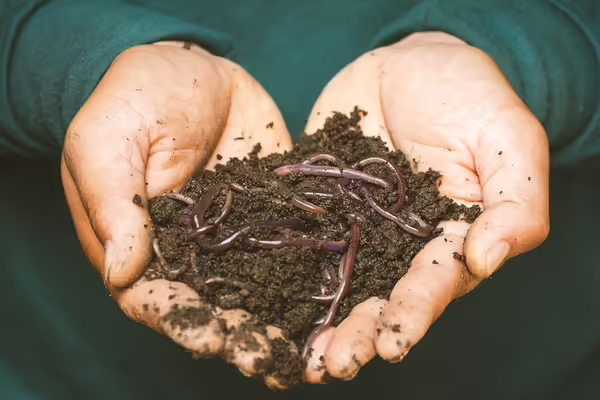
CHICAGO, Ill.- Learning about composting and beginning to separate food scraps from your garbage is one small step all Illinois residents can take to mitigate climate change during International Compost Awareness Week, May 1 to May 7.
Students in University of Illinois Extension’s recent pilot of Compost Ambassador training learned the science of composting, best use practices, and various ways to advance composting in their own communities. Especially important was how accessible composting could be to those without yards or money to purchase a food scrap pick-up service.
“I feel empowered now to spread the good news about composting even to those that don't have their own composting pile at home or live in a gardenless home,” says a participant in the pilot.
Municipalities around the area are also jumping on the bandwagon to offer free or reduced cost ways to make separating your food waste accessible for all. Currently, 70 municipalities in Northern Illinois and the Chicagoland area offer some type of food scrap pick-up service, whether it is a “ride along” with yard waste program or individual food scrap collection. These programs directly support Illinois Public Act 85-1430 of 1990 which banned yard waste from going to landfills.
For the past two years, Illinois Extension in Cook County has been working to foster a culture of composting by educating residents on the importance of composting. This includes providing opportunities for organic waste separation and piloting a new compost education course.
Last month the team recognized the urgency behind this work when the Intergovernmental Panel on Climate Change released a report warning that the world must act quickly and collectively to reduce emissions to slow global warming. To hold the rise in global temperatures to less than 2.7 degrees Fahrenheit, worldwide emissions must be reduced by 43 percent before 2030. While much of the report focuses on reducing fossil fuel emissions, one small thing individuals can do to help mitigate methane gas released into the atmosphere is to reduce food waste sent to landfills by separating household food scraps from the regular garbage service for composting. In Chicago alone it’s estimated that more than 500,000 tons of food scraps and yard waste is sent to landfills annually, rather than being transformed into compost, a valuable resource used to enrich our soils.
To take action in your community, bring your food scraps to an Illinois Extension organic waste collection event. The next Community Compost Collection events will be held this July in Park Forest and Homewood, both localities striving to bring free food scrap collection to their residents. To be placed on an interest list for our next session of Compost Ambassador, contact Sarah Batka.
To learn more about compost, download Composting 101, in English or Spanish and How to Get Started with Indoor Worm Composting.
To learn more about our composting education efforts visit the Cook County Composting Initiative webpage and follow us on Facebook.
If you have questions about the Cook County Composting Initiative, contact Kathryn Pereira.
ABOUT EXTENSION: Illinois Extension leads public outreach for University of Illinois by translating research into action plans that allow Illinois families, businesses, and community leaders to solve problems, make informed decisions, and adapt to changes and opportunities.